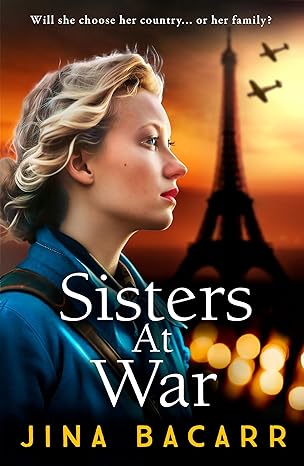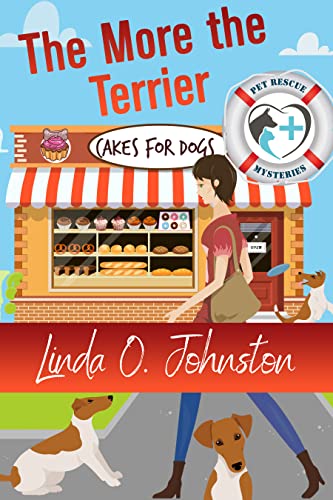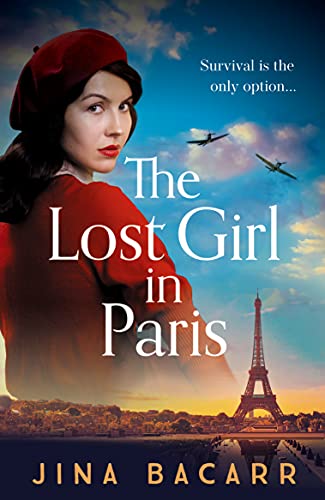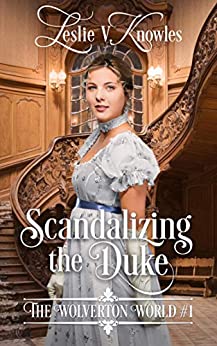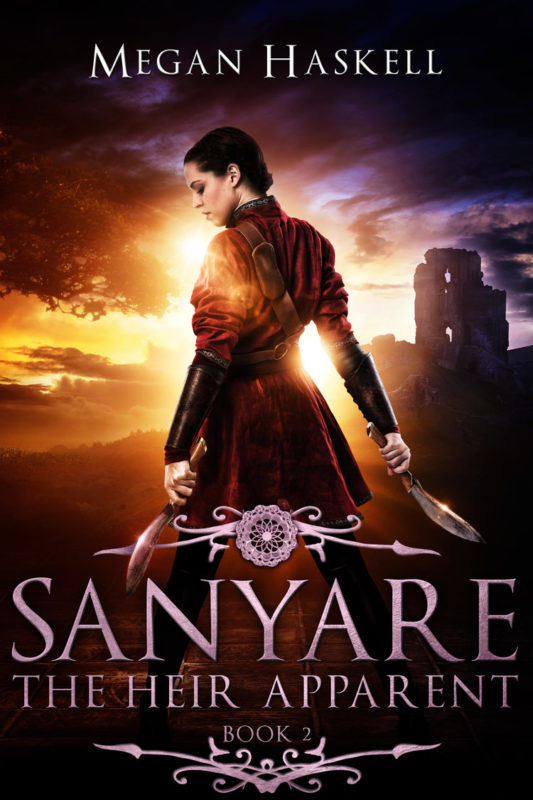A Mother Learns – 4 Haiku by Neetu
June 26, 2021 by Neetu Malik in category Poet's Day by Neetu Malik tagged as baby, growing, Haiku, life, mother, Neetu
A Mother Learns
4 Haiku
- gossamer touch,
mother strokes her newborn–
feathered beginnings
- young buds awaken
sleepy petals shake off dew
silver mist of dawn
- roots grow deep
where we plant seeds of love
becoming evergreens
- each arm a strong branch
holds up against mighty storms–
a mother’s instinct
© Neetu Malik
Some of Neetu’s Books
Stories My Mother Told Me
September 14, 2017 by Rebecca Forster in category Writing tagged as Craft, experience, Family, life, mother, writingMy mother will be 93 years old on September 21. She travels with me, reads all my books and is my best friend. I wrote this blog some time ago, but I want to share it again because it deserve repeating that she is an amazing woman. I am so proud of my mom. Happy birthday, mom.
_________

Mom at 92
My parents made a pact to stand on every continent in the world. When my dad passed away, my mother went to the Antarctic for both of them. That’s when I figured there was a lot I didn’t know about mom.
When she returned with a bright orange jacket that she got ‘for free’ (don’t count the cost of the cruise) she had lots of stories to tell. Yet, when the excitement of the trip wore off, we both had the sense that we were still standing on a pitching deck with no way to get to calm seas. A big piece of the puzzle – my dad – was missing.
“Write your memoir,” I said.
“My life wasn’t interesting,” she answered.
But the idea must have taken hold. Not long after this conversation, she called. She was done with her memoir.
“Impressive,” I mused.
It took me months to write a novel and she finished hers in a week. Then I saw why. Her ‘manuscript’ was five pages long and she was eighty-five years old. There had to be more.
And so began a year of weekend sleep-overs as we poured over photographs for inspiration. She had twenty beautifully documented photo albums, a box with pictures when cameras were still a new fangled thing.
There was mom wearing waist-length braids and Mary Jane shoes standing in the Germany village she called home.
She was a teenager in the U.S. while war raged in Europe, catching up the grandmother she had lived with, cousins and friends.
There was my mom posing in a swimsuit she bought with the dollar she found on the street.
Mom in her twenty-five dollar bridal gown perched in the back of a hay wagon beside my father, a skinny, wide-eyed farm boy who would become a doctor.
Mom with one child. Two. Three. Five. Six of us all together. Dark haired and big eyed we were her clones dressed in beautiful, homemade clothes. I remember going to sleep to the sound of her sewing machine.
And there were words! I bribed my mother with promises of Taco Bell feasts if she gave me details. Funny, what came to her mind.
To keep body and soul together when my father was in med school, he was a professional mourner and bussed tables for a wealthy fraternity. My mom worked in a medical lab where the unchecked radiation caused her to lose her first baby. They ate lab rabbits that had given their all for pregnancy tests. They were in love and happy and didn’t know they were poor. But St. Louis was cold, she remembered, and they couldn’t afford winter coats. Still, she insisted, they weren’t poor. I listened and knew they were happy.
She typed, I edited; I typed, she talked. My youngest brother almost died when he was 10. She didn’t cry for a long while; not until she knew he would live. The captain of the ship that took her back to Germany was kind. She dreamed of becoming a missionary doctor. In 1954, she had two toddlers (me and my brother) and another baby on the way when she and dad drove to Fairbanks, Alaska where he would serve his residency at the pleasure of the U.S. Air Force. Her favorite outfit was a suit with a white collar. She loved her long hair rolled at her neck in the forties. In the fifties she made a black dress with rhinestone straps and her hair was bobbed. In the sixties, she made palazzo pants and sported a short bouffant. She looked like a movie star in her homemade clothes. I wanted to grow up to be as glamorous as she was. She still thought she wasn’t interesting.
Mom wrote the forward to her memoir herself. It began:
A great sense of loneliness fills the house as twilight approaches. In the silence, I can almost hear the voices of my grown children as they recall their childhood years, the laughter of grandchildren and the quiet conversations of friends who have gathered here in years past, echoing through the empty rooms.
You see, she really had no need of my help as a writer.
We had seven copies printed with a beautiful cover of a sunset. She called the book In The Twilight of My Life and would not be swayed to change it. Mom thought it perfect and not the least depressing. It was, she laughed, exactly right. It was the laugh that made it right. She gave my brothers and sisters a copy for Christmas. My older brother had tears in his eyes. Everyone exclaimed: “I never knew that”.
Now I have a book more treasured than any I have written. I learned a lot about my mom and I realized why I create fictional women of courage and conviction, strength and curiosity, intelligence and, most of all, spirit. It’s because, all this time, I’ve been writing about my mother.
4 0 Read more
Heck Yeah! Writing Together Can Be….Fun?
August 15, 2011 by Rebecca Forster in category The Write Life by Rebecca Forster tagged as A Writer's Life, brother, collaboration, friends, mother, sister, sonI went to a movie I had been excited to see and was sorely disappointed. The story was thin, the plot holes deep and characterization shallow. When I saw four writers credited for the script, I realized why the movie never gelled. Odd slices of brilliance had flashed and fizzled in a jumble of visions, styles and pressure to perform.
Which leads me to the question of the day: How do creative partnerships thrive and turn out one saleable, seamless product? To answer that question, I joined Scott Gordon, a superior court judge and author, who partnered with Alex Abella, a seasoned nonfiction writer, to publish Shadow Enemies: Hitler’s Secret Plot against the United States and Debra L. Martin who teams with her brother, David W. Small, on the Rule of Otharia fantasy books. Then I threw in my two cents because my son and I partnered on two book-to-screen adaptation projects.
 The plan: Does there have to be one?
The plan: Does there have to be one?
Rebecca: Our plan was to adapt my books for the screen.* The project turned out to be more intricate than I ever imagined. While the skeleton of the story was there, a screenplay was completely different from a novel format. I had to lean on Alex’s expertise but first I had to acknowledge that, in this arena, he knew better than I did. I wrote the first draft then we sat for hours at the kitchen table going over every line, stage direction and piece of dialogue until we got it right.
Scott: We started from a solid foundation of factual material and a subject that intrigued both of us. Alex and I shared research responsibilities. Once we had all the information we could gather, we locked ourselves in the law library (with gallons of Diet Coke) and came out only when we had a very detailed outline. Alex used his amazing narrative skills to describe how Hitler’s spies were recruited, trained and landed in full Nazi uniforms on our shores. Because of my legal background, I picked up the story as it traveled through the court system, the presidential politics and military tribunal. We definitely played to our strengths.
 Deb: Luckily, my brother and I share a love of the fantasy genre and specifically of psi powers (i.e. telepathy, etc.) so we had a focus. The planning process was extensive and time consuming. We had to share our individual visions for the book and combine them so that we could build the characters and the fictional society from the ground up. For us planning and immersing ourselves in all the details were critical before we ever began to write.
Deb: Luckily, my brother and I share a love of the fantasy genre and specifically of psi powers (i.e. telepathy, etc.) so we had a focus. The planning process was extensive and time consuming. We had to share our individual visions for the book and combine them so that we could build the characters and the fictional society from the ground up. For us planning and immersing ourselves in all the details were critical before we ever began to write.
Execution: Two people/one voice
Rebecca: Because we were working in visuals, voice wasn’t as big a factor as it would have been for a novel. This project was about pacing. Our age difference really got in the way, not our talents. When we were working on our romantic comedy my sensibilities were from the Carey Grant era and his were aligned with The Hangover. With our psychological thriller I had already created a wonderful villain in the book and plot points that I thought were chilling. Alex kicked them up ten notches so those same points became gruesome. I can honestly say, he made both projects thrilling while he acknowledged my expertise in characterization and plot trajectory.
Scott: Because we had divided the subject matter so specifically, we each wrote our sections. When it was time to edit, we were extremely diligent. Through that process, there seemed to come a melding of both our voices resulting in what you called a ‘seamless third voice’.
Deb: We thought we could each write a chapter and then put them together. That plan was a disaster. Our success as co-authors came after much practice and creating detailed outlines not just for the book, but for each chapter. Still, we weren’t rigid and were always open to a chapter that was enhanced beyond the outline. I also continually edited as we went along. Then we both do a full edit, let the project sit and edit once more before publication. That smoothed out snags.
Rough Patches: Keeping the relationship sane & productive
Rebecca: If a mother and son could get divorced, we would have been after the first project. I would get upset because the source material was mine and I thought it was perfect. Alex, also thought it was perfect – for a different time and audience. The second time we worked together we laid out ground rules for resolving disagreements: stop working, reference sections of the source material that bothered us and offer alternative language until we found common ground.
Scott: What? Authors can have creative differences? Seriously, rough patches are a given when you have two authors and one project. I think our disagreements helped the creative process. We had to pull back, think of the project and be frank and direct. The process of hashing out our differences in viewpoints and style made the book richer.
Deb: Dave lives in California and I live in Boston, so when we got together, we worked extremely hard during our in-person visits. But there was one 14-hour editing session that disintegrated into raised voices and ego kicking. Suddenly, we started to laugh and called it a night. The next morning we came to a great compromise for the scene. Now we realize that you have to leave your ego at the door and work for the good of the story.
So, if you’re still thinking about teaming up, go for it. Before you do, make sure you’re a good match. Be civil, be honest, be clear about the purpose of the project, iron out the combined vision and recognize each other’s strengths and weaknesses. If you need a little inspiration pick up Shadow Enemies or Quest for Nobility in the Rule of Otharia series and see how two teams of pros turned out their impeccable books. And when my script becomes a movie, you’re all invited to join me and my partner for the premier – we’ll buy the popcorn.
*One script is in development, one is with producers and new books are always in the pipeline.
0 0 Read moreAffiliate Links
A Slice of Orange is an affiliate with some of the booksellers listed on this website, including Barnes & Nobel, Books A Million, iBooks, Kobo, and Smashwords. This means A Slice of Orange may earn a small advertising fee from sales made through the links used on this website. There are reminders of these affiliate links on the pages for individual books.
Search A Slice of Orange
Find a Column
Archives
Featured Books
THE MORE THE TERRIER
Is Lauren Vancouver's old mentor an animal hoarder?
More info →THE LOST GIRL IN PARIS
'I will never forget what the Nazi did to me. Never'
More info →SCANDALIZING THE DUKE
So far as the Duke of Wolveton is concerned, Charlotte Longborough is a scandal waiting to happen.
More info →
SANYARE: THE HEIR APPARENT
Her secret is unraveling. One dangerous quest could end it all...
More info →Newsletter
Contributing Authors
Search A Slice of Orange
Find a Column
Archives
Authors in the Bookstore
- A. E. Decker
- A. J. Scudiere
- A.J. Sidransky
- Abby Collette
- Alanna Lucus
- Albert Marrin
- Alice Duncan
- Alina K. Field
- Alison Green Myers
- Andi Lawrencovna
- Andrew C Raiford
- Angela Pryce
- Aviva Vaughn
- Barbara Ankrum
- Bethlehem Writers Group, LLC
- Carol L. Wright
- Celeste Barclay
- Christina Alexandra
- Christopher D. Ochs
- Claire Davon
- Claire Naden
- Courtnee Turner Hoyle
- Courtney Annicchiarico
- D. Lieber
- Daniel V. Meier Jr.
- Debra Dixon
- Debra H. Goldstein
- Debra Holland
- Dee Ann Palmer
- Denise M. Colby
- Diane Benefiel
- Diane Sismour
- Dianna Sinovic
- DT Krippene
- E.B. Dawson
- Emilie Dallaire
- Emily Brightwell
- Emily PW Murphy
- Fae Rowen
- Faith L. Justice
- Frances Amati
- Geralyn Corcillo
- Glynnis Campbell
- Greg Jolley
- H. O. Charles
- Jaclyn Roché
- Jacqueline Diamond
- Janet Lynn and Will Zeilinger
- Jaya Mehta
- Jeff Baird
- Jenna Barwin
- Jenne Kern
- Jennifer D. Bokal
- Jennifer Lyon
- Jerome W. McFadden
- Jill Piscitello
- Jina Bacarr
- Jo A. Hiestand
- Jodi Bogert
- Jolina Petersheim
- Jonathan Maberry
- Joy Allyson
- Judy Duarte
- Justin Murphy
- Justine Davis
- Kat Martin
- Kidd Wadsworth
- Kitty Bucholtz
- Kristy Tate
- Larry Deibert
- Larry Hamilton
- Laura Drake
- Laurie Stevens
- Leslie Knowles
- Li-Ying Lundquist
- Linda Carroll-Bradd
- Linda Lappin
- Linda McLaughlin
- Linda O. Johnston
- Lisa Preston
- Lolo Paige
- Loran Holt
- Lynette M. Burrows
- Lyssa Kay Adams
- Madeline Ash
- Margarita Engle
- Marguerite Quantaine
- Marianne H. Donley
- Mary Castillo
- Maureen Klovers
- Megan Haskell
- Melanie Waterbury
- Melisa Rivero
- Melissa Chambers
- Melodie Winawer
- Meriam Wilhelm
- Mikel J. Wilson
- Mindy Neff
- Monica McCabe
- Nancy Brashear
- Neetu Malik
- Nikki Prince
- Once Upon Anthologies
- Paula Gail Benson
- Penny Reid
- Peter Barbour
- Priscilla Oliveras
- R. H. Kohno
- Rachel Hailey
- Ralph Hieb
- Ramcy Diek
- Ransom Stephens
- Rebecca Forster
- Renae Wrich
- Roxy Matthews
- Ryder Hunte Clancy
- Sally Paradysz
- Sheila Colón-Bagley
- Simone de Muñoz
- Sophie Barnes
- Susan Kaye Quinn
- Susan Lynn Meyer
- Susan Squires
- T. D. Fox
- Tara C. Allred
- Tara Lain
- Tari Lynn Jewett
- Terri Osburn
- Tracy Reed
- Vera Jane Cook
- Vicki Crum
- Writing Something Romantic
Affiliate Links
A Slice of Orange is an affiliate with some of the booksellers listed on this website, including Barnes & Nobel, Books A Million, iBooks, Kobo, and Smashwords. This means A Slice of Orange may earn a small advertising fee from sales made through the links used on this website. There are reminders of these affiliate links on the pages for individual books.










